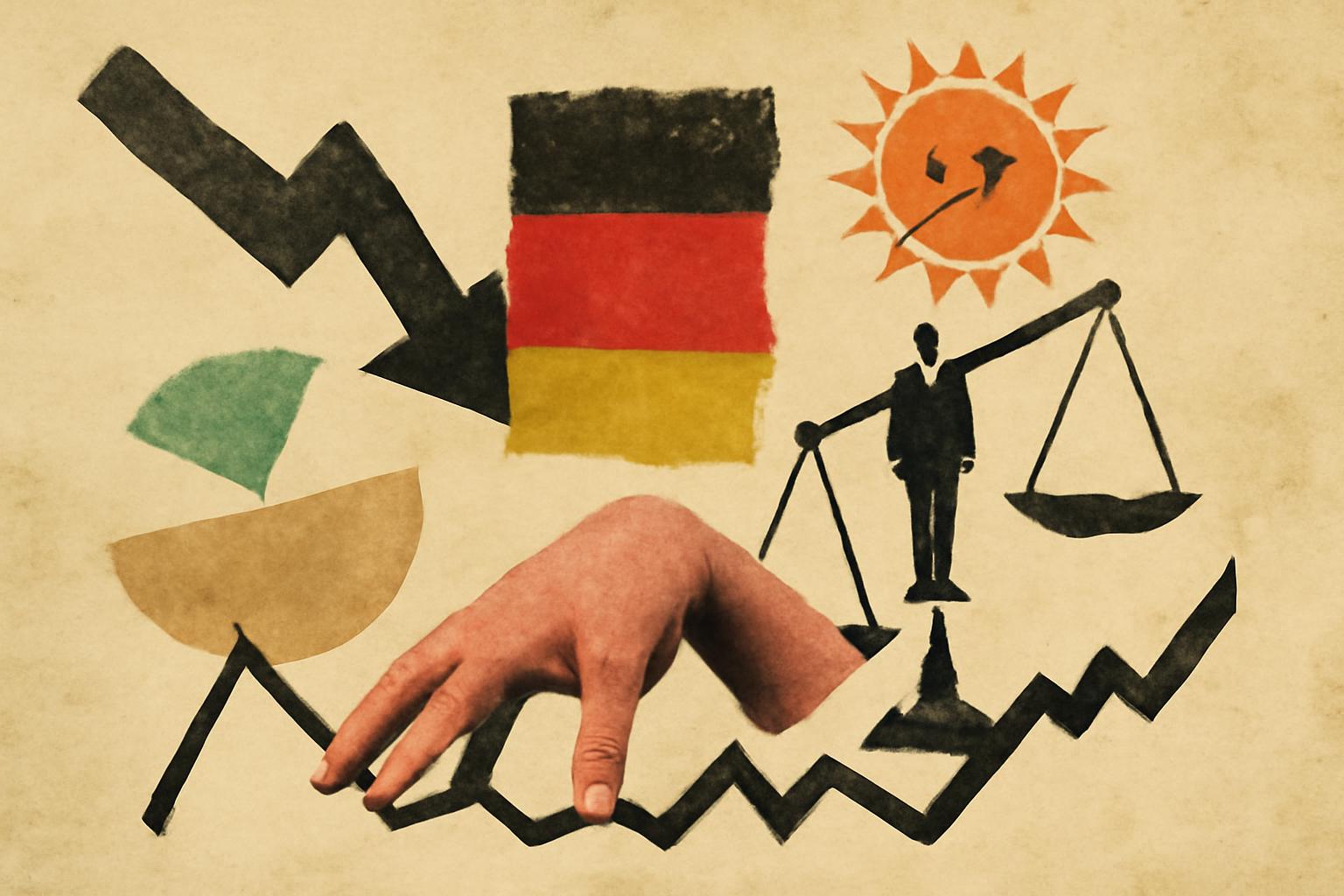The indicators show a modest uptick in the German business climate, with the Ifo index nudging up to 89.0 from 88.6 for August, aided by increasingly optimistic expectations even as the present conditions stay stubbornly weak. The six-month streak of improvement suggests nothing more than a tentative crawl out of stagnation, not a launch. Orders are not gaining momentum, and the uptick in sentiment looks more like a marginal hope than a recovery. Add to that Destatis’ quarterly numbers—GDP shrinking 0.3% quarter-on-quarter in Q2 after a 0.3% increase in Q1—and the Bundesbank’s forecast of stagnation in the near term, while KfW clings to a faint 0.2% annual growth thanks to a more resilient stance on U.S. trade disputes, and the picture is clear: fragility persists. The whole tableau is framed by a weak global backdrop, tepid demand, and underutilized capacity.
From a Hayekian lens, this is a textbook case of dispersed knowledge and the failure of centralized planning to steer an economy with precision. The signals that private firms pick up—the cautious improvement in expectations—are undermined by policy uncertainty, regulatory friction, and monetary distortions that scramble price signals and misallocate capital. If the state didn’t smother prices with interventions, rent-seeking, and subsidies, entrepreneurs would discover true demand more accurately and allocate resources to genuinely productive uses. The minor uptick in sentiment should not be mistaken for a cure; it’s the private sector trying to navigate a landscape shaped more by political calendars than by voluntary coordination.
Nozick would insist that what’s happening here is a consequence of a state that compels redistribution, meddles in credit, and props up favored sectors at the expense of rights-respecting exchange. The GDP figures and the dependence on a U.S. trade deal as a swing factor reveal how state intervention channels and protects certain interests while others bear the costs. The moral case is simple: if wealth arises from voluntary exchanges under a framework of secure rights, government attempts to pick winners and finance them via borrowed funds infringe on individuals’ rights to keep what they earn and to contract freely.
Rand would argue that this entire episode demonstrates the moral and practical superiority of a laissez-faire order in which property rights and contractual freedom reign unmolested by bureaucratic steering. The KfW development bank and similar state-backed credit schemes are distortions that invite moral hazard and crowd out private risk-taking. Real growth isn’t generated by government guarantees; it comes from individuals pursuing their rational self-interest within a system that protects life, liberty, and property. The faint growth projected for the year is not a success of policy; it’s a testament to how fragile human flourishing becomes under even modest state meddling.
To translate this into action: shrink the state to its rightful, constitutional minimum—protect property rights, enforce contracts, defend borders, and provide security. End subsidies, development banks, and policy-directed credit that pick winners and punish losers. Deregulate and reduce the tax and regulatory burden so that voluntary exchange can reallocate resources efficiently. Abolish or privatize state-backed financing that creates moral hazard and mispriced risk. Let banks operate under true market discipline, free from implicit guarantees and political rescue missions. Embrace sound money and resist monetary manipulation that floods the economy with artificial credit and distorts the pricing of goods and capital. Remove trade barriers and embrace genuine free exchange, allowing international markets to discipline misaligned production without political favoritism.
Only by reestablishing a true price system, protecting individual rights, and withdrawing the state from economic steering can the private sector discover real capacity to expand, create durable wealth, and sustain growth beyond the next optimistic headline. The rest is fragile illusion—an economy crawling out of stagnation, not walking upright.
